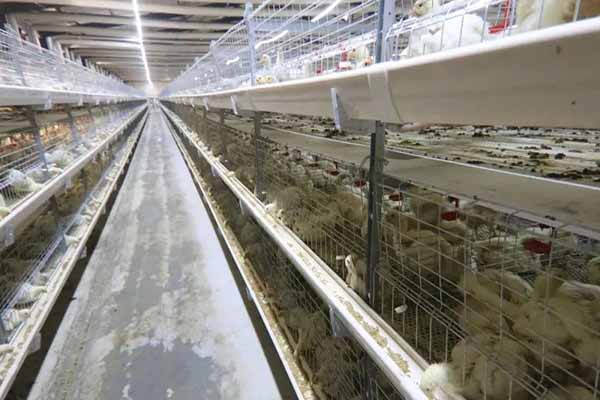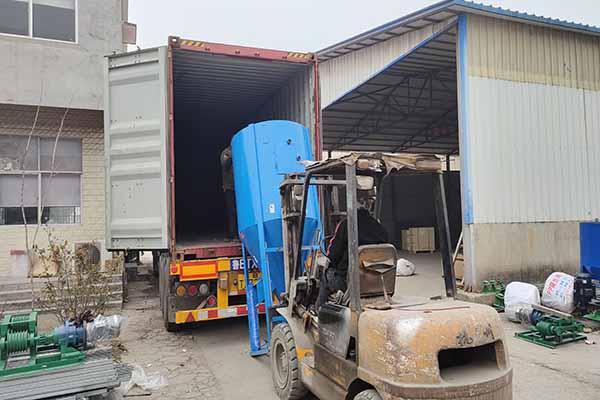Hen Farming in Kenya: A Comprehensive Guide to Success
Time : 2025-05-13
Kenya, with its rich agricultural heritage, is a perfect place for hen farming. Whether you’re looking to start a small-scale business or just want to keep a few chickens for the family, this guide will provide you with all the information you need. From choosing the right breed to setting up your farm, we’ve got you covered.
Why Hen Farming in Kenya?
Kenya’s climate and soil conditions are ideal for poultry farming. The country has a warm, tropical climate with two main seasons: the long rains from March to May and the short rains from October to December. This makes it an excellent place for raising chickens, as they can thrive in a variety of environments.
Additionally, there is a growing demand for chicken meat and eggs in Kenya. As the population grows, so does the need for affordable, nutritious protein sources. This makes hen farming a potentially lucrative business venture.
The Importance of Choosing the Right Breed
When it comes to hen farming in Kenya, selecting the right breed is crucial. Different breeds have different characteristics, such as growth rate, egg-laying ability, and disease resistance. Here are some popular breeds that are well-suited to the Kenyan climate:

- Orpingtons: These hardy birds are excellent layers, producing large, white eggs.
- Brahmas: Known for their adaptability, Brahmas are good layers and can withstand harsh weather conditions.
- Leghorns: These birds are highly productive, laying eggs at a rate of up to 300 per year.
- Welsummers: Welsummers are popular for their attractive appearance and good laying habits.
When choosing your breed, consider the following factors:
- Climate: Ensure that the breed can withstand the temperature and weather conditions in your area.
- Laying ability: Choose a breed that matches your egg production goals.
- Disease resistance: Some breeds are more resistant to diseases than others, which can help reduce your veterinary expenses.
Setting Up Your Hen Farm
Once you’ve decided on the breed of chicken you want to raise, it’s time to set up your hen farm. Here are some essential steps to help you get started:
breed of chicken you want to raise, it’s time to set up your hen farm. Here are some essential steps to help you get started:
Location
Choose a location that is accessible and easily managed. Ideally, your farm should be situated in a quiet area away from busy roads and other sources of noise and pollution. Also, ensure that the soil is fertile and free from contaminants.
Fencing
Proper fencing is essential to protect your chickens from predators. Use sturdy, predator-proof wire or chicken wire to enclose your coop and run. Remember to bury the wire at least 6 inches into the ground to prevent predators from digging under the fence.
Coop Design
Your coop should provide a safe, comfortable environment for your chickens. Here are some key considerations:
- Size: Ensure that the coop is large enough for your chickens to move around comfortably. A general rule of thumb is to provide 3 to 4 square feet of space per bird.
- Ventilation: Good ventilation is crucial for keeping the coop cool and dry. Include windows or vents on the sides and top of the coop.
- Bedding: Use straw, wood shavings, or other bedding materials to keep the floor of the coop dry and comfortable.
- Nesting Boxes: Provide nesting boxes for your hens to lay their eggs. Ensure that there is one nesting box for every three to four hens.
Feeding and Watering
Proper nutrition and hydration are essential for healthy chickens. Here are some tips:
- Feeding: Provide a balanced diet that includes a commercial chicken feed, along with fresh water and a small amount of greens or scraps.
- Water: Ensure that your chickens have access to fresh, clean water at all times. Use a sturdy waterer that is easy to clean and resistant to freezing in cold weather.
Maintenance and Care
Regular maintenance and care are essential for a successful hen farm. Here are some key tasks to keep in mind:
- Cleaning: Clean your coop and nesting boxes regularly to prevent disease and keep your chickens healthy.
- Health Checks: Regularly inspect your chickens for signs of illness or injury. Seek veterinary assistance if necessary.
- Parasite Control: Use appropriate methods to control parasites such as mites and lice.
- Winter Preparation: Ensure your chickens have adequate protection from the cold, including a well-insulated coop and access to fresh water that doesn’t freeze.
Marketing Your Products
Once you’ve established your hen farm, it’s time to market your products. Here are some strategies to help you sell your chicken meat and eggs:
- Local Markets: Attend local markets and fairs to sell your products directly to consumers.
- Wholesale: Contact local restaurants, hotels, and grocery stores to establish a wholesale relationship.
- Social Media: Use social media platforms to promote your hen farm and reach a wider audience.
Conclusion
Hen farming in Kenya can be a r ewarding and profitable venture. By choosing the right breed, setting up a well-maintained farm, and marketing your products effectively, you can successfully raise chickens and meet the growing demand for chicken meat and eggs in your community.
ewarding and profitable venture. By choosing the right breed, setting up a well-maintained farm, and marketing your products effectively, you can successfully raise chickens and meet the growing demand for chicken meat and eggs in your community.











